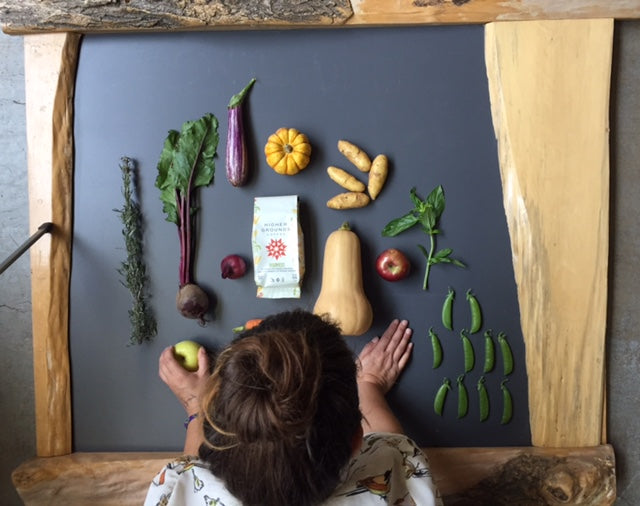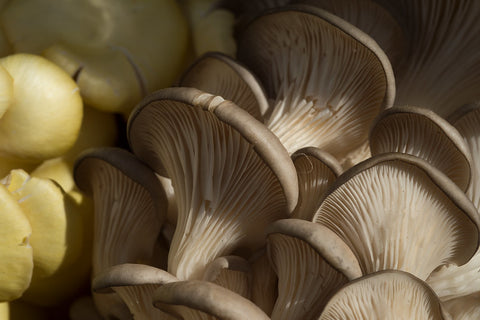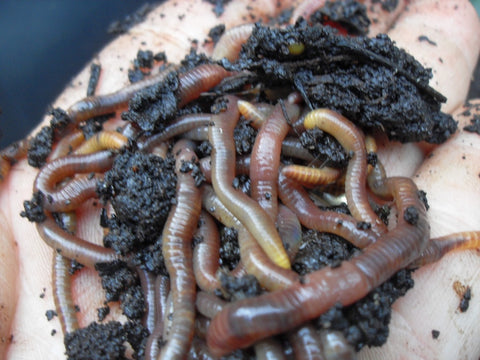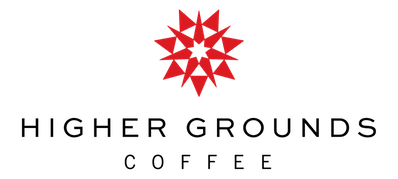
It might not be anywhere near spring yet here in Northern Michigan, but some of you in warmer climates might be ready for garden work mighty soon. We've partnered with LawnStarter to bring you some ideas and tips for using all those spent coffee grounds left over after you've brewed your HG goodness! This post was written by Clarence Washington.
//

There's nothing like coffee for a quick pick-me-up in the morning. Your plants could also use a coffee boost once in a while. The gardening section of your nearest big-box store offers plenty of products, but those can get expensive fast. If you’re in the market for a natural, free garden booster, coffee grounds might hit the spot. We’ve brewed up six ways to turn this common kitchen waste into gardening gold.
1. Add to Mulch
In gardens and landscaping, mulch improves the appearance and helps plants retain water. While coffee grounds won't serve as a mulch on their own, they perform like a champ when mixed with other organic matter. Coffee is an excellent additive to compost, shredded bark or leaf mold. You can also use coffee grounds as a base layer for wood chips and chunks of bark. But make sure to keep the coffee layer thin — no more than a half-inch.
2. Use in Fertilizer

Coffee grounds are much too acidic to add directly to soil as a fertilizer. But, coffee grounds contain potassium, magnesium, and are super high in nitrogen. By mixing coffee grounds with lime and organic matter in a compost pile, you get a shot of nutrients while cutting coffee’s natural acidity. This mixture is especially good for acid-loving plants such as azaleas, rhododendrons, and blueberries.
3. Repel Unwanted Visitors?
Pest control is always a concern for gardeners, especially those who grow fruits and vegetables. You’ll mind a lot of myths on the internet about coffee grounds being used to kills slugs and ants. While the grounds will repel some insects, it’s caffeine that kills garden pests, and coffee grounds don’t have enough caffeine to act as an insecticide.
4. Grow Mushrooms

Coffee grounds can be an effective base on which to grow oyster mushrooms. There are several benefits to growing oyster mushrooms this way, but the biggest is simplicity. Unlike straw or sawdust, coffee doesn’t need to be sterilized before inoculation; the brewing process does that part for you.
5. Shift Soil’s pH
Speaking of acidity, spent or fresh coffee grounds can also be used to alter your garden soil’s pH level. The pH scale goes from 0 to 14. Higher numbers are more alkaline, while lower numbers are more acidic. Grass and most landscape plants tend to do well in soil with a pH of about 6.5. Peppers, potatoes, and many flowering shrubs thrive in more acidic soil. Coffee grounds sprinkled on top of the soil before it is turned can give acid-loving species the environment they need to grow best. Warning: Because the grounds will help your shrubs flower more often, so you may find yourself doing more pruning.
6. Feed the Worms

Good gardeners know a healthy worm population leads to a healthy crop. And what do worms like to eat more than dirt? Dirt mixed with coffee grounds! People who raise worms for a living swear by coffee grounds and use them to give their clew (a group of worms) supplemental nutrients.
Sustainable Choices
Any time there’s a chance to reduce, recycle, or reuse, you can bet you’ll find gardeners at the front of the line. Tens of billions of pounds of coffee are produced every year, and less than 1% of that actually filters through into our cups. That’s a lot of biomass that doesn’t need to end up in a landfill!
No matter the location of your garden, we’re all working with the same Earth. Ethically sourced coffee produces a better compost, and it’s a better choice for the unique environments where our favorite beans grow.
Clarence Washington is a longtime landscaper sold on native plants and biodiversity. His backyard is a certified wildlife habitat.
